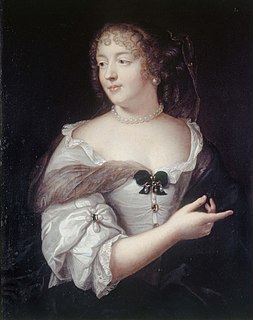Top 73 Quotes & Sayings by Marie de Rabutin-Chantal, marquise de Sevigne
Explore popular quotes and sayings by Marie de Rabutin-Chantal, marquise de Sevigne.
Last updated on November 4, 2024.
... Providence conducts us with so much kindness through the different periods of our life, that we scarcely feel the change; our days glide gently and imperceptibly along, like the motion of the hour-hand, which we cannot discover. ... we advance gradually; we are the same to-day as yesterday, and to-morrow as to-day: thus we go on, without perceiving it, which is a miracle of the Providence I adore.
long journeys are strange things: if we were always to continue in the same mind we are in at the end of a journey, we should never stir from the place we were then in: but Providence in kindness to us causes us to forget it. It is much the same with lying-in women. Heaven permits this forgetfulness that the world may be peopled, and that folks may take journeys to Provence.
Nothing is more certain of destroying any good feeling that may be cherished towards us than to show distrust. To be suspected as an enemy is often enough to make a man become so; the whole matter is over, there is no farther use of guarding against it. On the contrary, confidence leads us naturally to act kindly, we are affected by the good opinion which others entertain of us, and we are not easily induced to lose it.

















